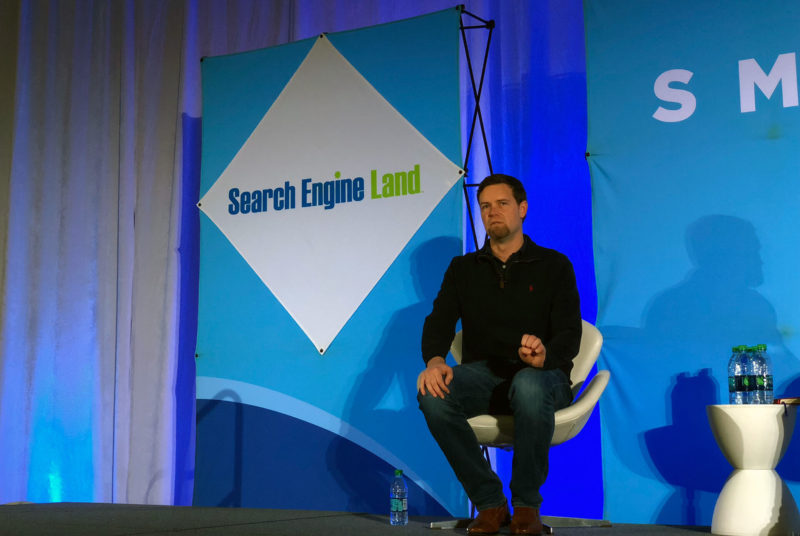AMA with Google highlights: The core search algorithm update, mobile-first index status & more
From nofollow links to negative SEO, the core search algorithm and Google showing zero search results -- catch up on what Google's Nathan Johns had to say at SMX West.
At SMX West last week, Michelle Robbins conducted an AMA (Ask Me Anything) session with Nathan Johns, a search quality analyst at Google. Johns touched on topics ranging from the core search algorithm update a week ago to the mobile-first index, the Google Search Console, Google’s zero results experiment and much more. Below are highlights from the AMA.
Core search algorithm update
Johns noted the core search algorithm update started to roll out on March 7. Most SEOs believed it started to roll out either on March 8 or 9. He reiterated that this core search algorithm update is designed to “reward under-rewarded sites,” and if your site saw a drop, just keep working on making your site better, it does not indicate a penalty.
The mobile-first index and speed update
With the mobile-first index, there is nothing new to add; it is still “chugging along,” Johns said, and overall, this is a big effort and a big change, so Google is taking its time with it. The speed update is coming in July, and thus, speed and mobile-friendliness are most important. Everyone should be working on that for their websites if they have not done so already.
Voice search
There were a number of presentations during SMX West addressing voice search and how site owners can prepare their content for surfacing in voice. Johns did not have specific information to share with respect to numbers or other data but did note:
- Voice search is growing and getting better all the time. It is baked into new products all the time, and more and more people use it daily.
- Voice search data in the Google Search Console reports is something that is on Google’s radar, but Johns has no idea if the reports will come to the search community or not.
Ranking signals
Several audience members asked questions related to various ranking signals (or presumed ranking signals), and Johns clarified:
- Social media isn’t a ranking signal. Google looks at links in social media just as they look at links on any webpage. Google has no special treatment for social media.
- Google doesn’t treat adult sites any differently from other websites, other than knowing that it is an adult site and that SafeSearch is being used as a filter for those who want to remove adult content from the search results.
- Google doesn’t treat .com TLDs differently from any other TLD, outside of ccTLDs that may get geotargeted.
- He was unable to comment about how “unlinked brand mentions” help or don’t help a site rank. For example, if someone mentions your brand on their site but does not link to your site, does the unlinked mention drive any ranking benefit for your website?
Nofollow
There were a surprising number of questions surrounding use of the “nofollow” link attribute. Nathans advised:
- The nofollow attribute for links has not changed at all. It still works the same way it did when Google first began supporting it.
- Don’t think or worry about using the nofollow attribute for crawl budget purposes. Crawl budget isn’t something you should worry about.
Communicating with Google
Google is listening to the community feedback on the zero results experiment and will consider the feedback they get going forward. Nathan wants to make sure you all use the official webmaster forums, Google Search Console, developer docs, and, of course, read Google’s webmaster guidelines and watch the company’s videos.
Best practices
Johns said that SEOs do not have to worry about negative SEO, at least the “vast majority” of it. He recommended using the disavow tool in Google Search Console if you are concerned, however. His advice remains that sites that follow best practices for user experience will be successful in the SERPs. He said that business owners should experience everything their customer experiences by using their websites. You should be intimately familiar with everything about it, he said. You should ask your users for feedback and use that feedback to make improvements.
Those were the main discussion points from the AMA with Google at SMX West last week. Several other questions were asked, but Johns was unable to comment. We’ll be following up with him on those and post a follow-up once we have those comments.
Search Engine Land is owned by Semrush. We remain committed to providing high-quality coverage of marketing topics. Unless otherwise noted, this page’s content was written by either an employee or a paid contractor of Semrush Inc.


